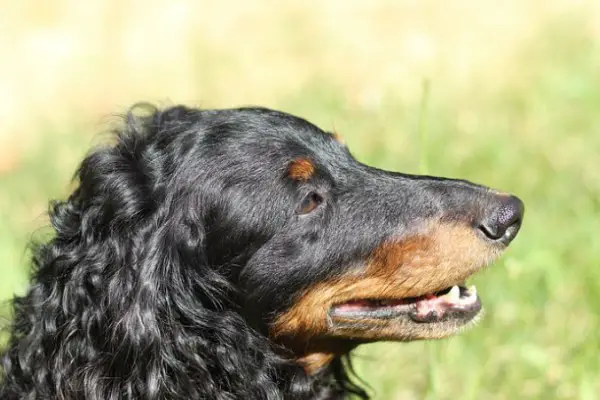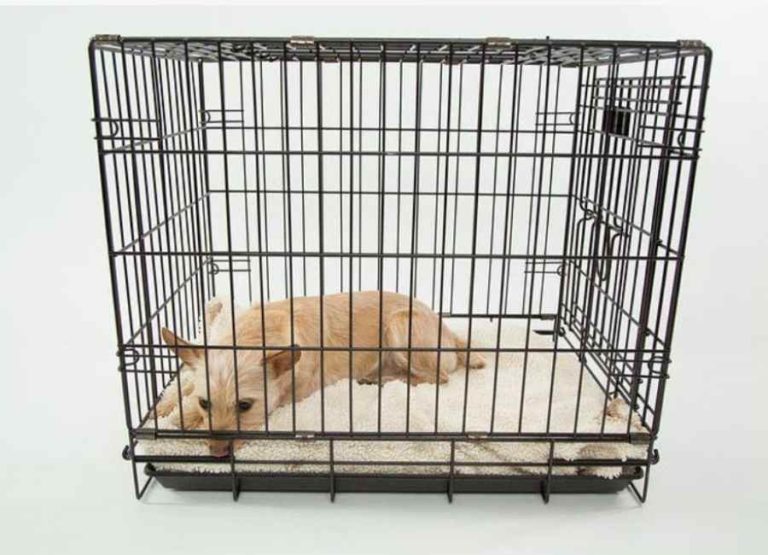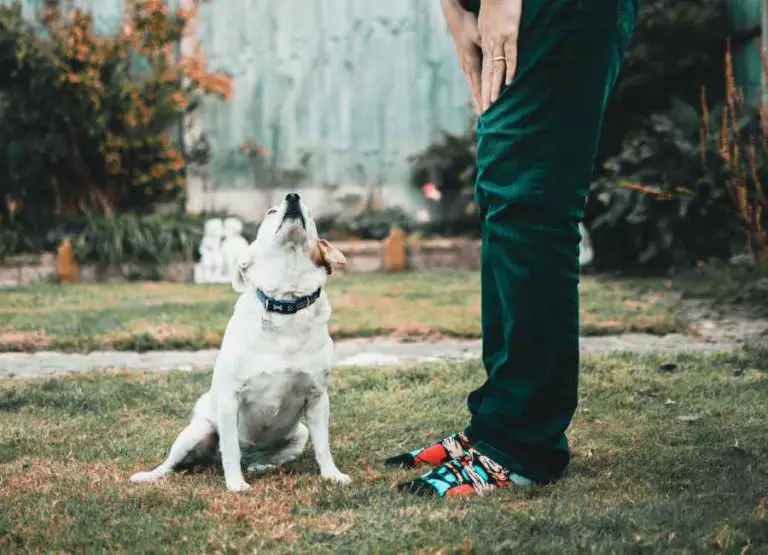Understanding Maternal Aggression in Dogs [Useful Hints]
![Understanding Maternal Aggression in Dogs [Useful Hints] Maternal Aggression in Dogs](https://petcreeks.com/wp-content/uploads/2023/10/pexels-briseed-14846036.jpg)
If you’ve ever witnessed a mama dog fiercely protecting her pups, you’ve probably encountered maternal aggression.
In this blog post, we’ll dive into what causes this behavior, how to identify it, and most importantly, how to manage it.
So, grab a cup of tea, get cozy, and let’s explore the fascinating world of maternal aggression in dogs!
What is Maternal Aggression in Dogs?
Maternal aggression in dogs refers to a behavior displayed by female dogs who become protective and aggressive towards anyone or anything that they perceive as a threat to their puppies.
This aggression can occur during pregnancy, while giving birth, or while nursing the puppies.
Signs of Maternal Aggression in Dogs
Here are some common signs of maternal aggression in dogs:
1. Growling and Snarling: A mother dog may growl and snarl when she feels threatened or when someone or something approaches her puppies.
2. Baring Teeth: The mother dog may bare her teeth as a warning sign to keep others away from her puppies.
3. Lunging and Biting: Maternal aggression can escalate to lunging and biting if the mother dog perceives a threat to her puppies. She may attack individuals or other animals that come too close.
4. Protective Stance: The mother dog may assume a protective stance, standing tall with her body tense and her ears and tail raised. This posture indicates her readiness to defend her puppies.
5. Body Blocking: The mother dog may physically block access to her puppies by standing in front of them or positioning herself between them and the perceived threat.
6. Hyperalertness: Maternally aggressive dogs are often hyperalert and constantly scanning their surroundings for potential threats to their puppies. They may exhibit heightened vigilance and react quickly to perceived dangers.
7. Warning Signs: Before displaying overt aggression, a maternally aggressive dog may give warning signs such as a low growl, showing teeth, or a hard stare. These signs indicate that the dog is feeling threatened and may escalate to aggression if the threat persists.
Causes of Maternal Aggression in Dogs
Here are some common causes of maternal aggression in dogs:
1. Protective Instinct: Maternal aggression is a natural instinct for female dogs to protect their puppies. They may perceive any perceived threat as a danger to their offspring and respond aggressively to defend them.
2. Hormonal Changes: Maternal aggression can be influenced by hormonal changes during pregnancy and lactation. The surge in hormones can affect the dog’s behavior and make them more prone to aggression.
3. Fear or Anxiety: Dogs may exhibit maternal aggression if they feel threatened or anxious about the safety of their puppies. This can be triggered by unfamiliar people, animals, or stressful situations.
4. Lack of Socialization: Dogs that have not been properly socialized may be more prone to maternal aggression. If a dog has not been exposed to different people, animals, and environments during their early development, they may be more likely to display aggressive behavior when they become mothers.
5. Previous Negative Experiences: Dogs that have had negative experiences in the past, such as trauma or abuse, may be more likely to exhibit maternal aggression. These negative experiences can contribute to fear or anxiety, leading to aggressive behavior.
Read more about things that lead to dog aggression.
How to Handle Maternal Aggression
Maternal aggression in dogs can be a concerning behavior, as it can pose a risk to both the mother dog and her puppies. Here are some practical approaches to help stop maternal aggression in dogs:
Early socialization and handling of puppies can help them develop positive associations with human touch and interaction. This can reduce the likelihood of maternal aggression later on.
2. Positive reinforcement training
Using positive reinforcement training techniques can help teach the mother dog appropriate behaviors and reinforce calm and non-aggressive responses. Rewarding desired behaviors can help redirect the mother dog’s focus and reinforce positive interactions.
3. Provide a safe and comfortable environment
Creating a safe and comfortable environment for the mother dog and her puppies is crucial.
This includes providing a quiet and secure space where the mother dog feels safe and can relax without feeling threatened.
4. Avoid stressors
Identify and avoid potential stressors that may trigger maternal aggression. This can include limiting exposure to loud noises, unfamiliar people or animals, and other situations that may cause anxiety or stress for the mother dog.
5. Gradual introduction to new experiences
Introduce new experiences and stimuli gradually to the mother dog and her puppies.
This can help them become familiar with different environments, people, and animals in a controlled and positive manner.
6. Separate the mother dog from her puppies if necessary
In some cases, it may be necessary to temporarily separate the mother dog from her puppies to ensure their safety.
This should be done under the guidance of a professional to minimize stress and ensure the well-being of both the mother and the puppies.
7. Monitor and manage interactions
Continuously monitor the interactions between the mother dog and her puppies. If signs of aggression or tension arise, intervene calmly and redirect the mother dog’s attention to more appropriate behaviors. Consistent supervision and management can help prevent aggressive incidents.
8. Gradual desensitization and counterconditioning
Gradual desensitization and counterconditioning techniques can be used to help the mother dog become more comfortable with people approaching her and her puppies.
This involves gradually exposing her to controlled situations where she can learn that people approaching are not a threat. Positive reinforcement, such as treats or praise, can be used to reward calm behavior.
9. Seek professional help
If maternal aggression persists or escalates despite your efforts, it is important to seek professional help from a veterinarian or a qualified animal behaviorist.
They can assess the situation and provide guidance on behavior modification techniques or other interventions that may be necessary.
Read more about stopping dog aggression.
Preventing Maternal Aggression in Dogs
To prevent maternal aggression in dogs, it is important to provide proper socialization and training from an early age.
This includes exposing the mother dog to various people, animals, and environments to build her confidence and reduce fear or anxiety.
Additionally, it is crucial to handle and interact with the puppies regularly to ensure they are accustomed to human touch and presence.
Consistent positive reinforcement training methods should be used to teach the mother dog appropriate behavior and to redirect any signs of aggression.
Lastly, it is recommended to consult with a professional dog trainer or behaviorist for guidance and support in preventing maternal aggression.
Frequently Asked Questions
Why do female dogs exhibit maternal aggression?
Maternal aggression is a natural instinct for female dogs to protect their offspring. It is their way of ensuring the survival and safety of their puppies. Hormonal changes during pregnancy and after giving birth can also contribute to the intensity of this behavior.
How can I recognize maternal aggression in my dog?
Signs of maternal aggression may include growling, barking, lunging, snapping, or even biting. The dog may display these behaviors when approached by humans or other animals near her puppies. It’s important to note that not all female dogs exhibit maternal aggression, and it may vary in intensity among individuals.
Is it normal for a dog to show aggression towards humans during this time?
While maternal aggression is a normal behavior in female dogs, aggression towards humans should not be tolerated. If a dog displays aggression towards humans, it is crucial to seek professional help from a qualified dog trainer or behaviorist to address the issue and ensure everyone’s safety.
Can maternal aggression be prevented or controlled?
Preventing maternal aggression entirely may not be possible, as it is a natural instinct. However, early socialization, positive reinforcement training, and providing a peaceful and secure environment for the mother and her puppies can help minimize the intensity of the aggression. Consulting with a professional dog trainer or behaviorist can offer valuable guidance in managing maternal aggression.
How long does maternal aggression last?
The duration of maternal aggression can vary from dog to dog. Some dogs may exhibit aggressive behavior only during the early stages of parenthood, while others may continue to display it until the puppies are weaned or even longer. It is important to be patient and seek professional guidance to ensure the well-being of the mother and her puppies during this time.
Read more about other forms of aggression.
Conclusion
In conclusion, understanding and addressing maternal aggression in dogs is crucial for the well-being of both the mother and her puppies.
By providing a safe and controlled environment, seeking professional guidance, and implementing positive training techniques, we can help nurture a harmonious relationship between the mother and her offspring.
Remember, patience, empathy, and a proactive approach are key in managing maternal aggression and promoting a loving bond within the canine family.

![Resource Guarding in Dogs [Signs, Causes, & Fixes] Resource Guarding in Dogs](https://petcreeks.com/wp-content/uploads/2023/10/pexels-zen-chung-5749096.jpg)




